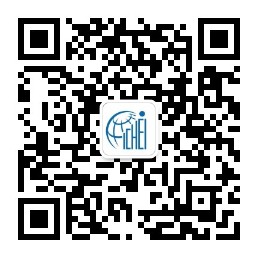Micro-Certification Enhances AI Literacy for Mongolian Teachers
Amid the global shift towards digital education, the International Institute of Online Education Micro-Certification Project for Enhancing Digital and AI Competencies of University Teachers (IIOE Micro-Certification Project), launched by the International Centre for Higher Education Innovation under the auspices of UNESCO (UNESCO-ICHEI), is playing a vital role in supporting the digital transformation of universities in developing countries. As one of the first pilot countries, Mongolia has actively engaged in the project and seen encouraging outcomes. Leveraging the IIOE learning platform, the Mongolian University of Science and Technology (MUST) — host institution of the IIOE National Centre in Mongolia— has delivered AI literacy training to over 1,800 pre-service and in-service teachers from more than 10 universities across the country in a short period of time, through an online-offline and cascade training approach.
As one of the world's most sparsely populated nations—with fewer than two people per square kilometre—traditional in-person training is both costly and inefficient. Digital learning, therefore, presents a highly cost-effective alternative. Against this backdrop, digital transformation has emerged as a critical strategy for ensuring inclusive and equitable quality education.
The Mongolian government is systematically promoting the integration of digital technologies into its education system, aiming to build an innovative learning ecosystem. Key pillars of this transformation include curriculum reform, teacher training, and increased student engagement.
Mongolia has steadily advanced its digital education transformation, evolving from theDistance Education National Program 2002–2010to the currentDigital Nation Guidelines. These efforts have progressively strengthened the country's digital infrastructure and enriched educational resources.
Guided by theVision-2050and a series of comprehensive education law amends, Mongolia has developed a comprehensive policy system addressing digital literacy, online learning structures, and the integration of digital technologies in higher education.
At the 2022 Transforming Education Summit, Mongolia was recognised by the United Nations as a "Champion Country" for its achievements in digital learning, earning international recognition.
While the policy blueprint is in place, Mongolia—like many developing countries—continues to face critical bottlenecks in the implementation process, including weak foundation in digital literacy, gaps in teacher development systems, lagging infrastructure and lacking in resources.
The International Institute of Online Education (IIOE) has offered new pathways for Mongolian universities to advance their digital transformation in the spirit of collaboration. In 2022, the Mongolian University of Science and Technology (MUST) partnered with UNESCO-ICHEI to launch the "IIOE Pilot Project in Mongolia: Blended Learning Capacity Building for STEM Teachers" (IIOE Mongolia Pilot Project). Through teacher training and innovative practices in blended learning, the project developed models in STEM and other key disciplines, enhancing the digital teaching competencies of higher education faculty across Mongolia.
Developed collaboratively by UNESCO-ICHEI and the IIOE National Centre in Mongolia by the end of 2024, the Micro-Certification Project focuses on building a localised training system. It not only enhances the AI application capabilities of university faculty but also fosters an AI education culture within the Mongolian higher education system through the widespread dissemination of open educational resources. From reforming classroom teaching to deepening inter-university cooperation, and from improving educational quality to expanding digital education, this project is injecting new vitality into Mongolian higher education.
The IIOE Micro-Certification Project in Mongolia has adopted a phased capacity-building model, centred on a competency-based curriculum and highly localised implementation. The project first selects core faculty members to complete AI education training in English, then trains them to become instructors. Course content is subsequently fully translated into Mongolian and adapted into local teaching materials, enabling large-scale dissemination.
 |  |  |
On-Site Training Sessions
As part of the IIOE Micro-Certification Project, the certification mechanism has been closely integrated into the faculty training system of the Open Education Institute at MUST (MUST-OEI), covering both pre-service and in-service teacher development. A joint certification model between UNESCO-ICHEI and MUST has been adopted, positioning the micro-certifications as a valuable complement to the national teacher training framework.
Significant progress is also being made in academic recognition. Specifically, theICT Competency Framework for Teachersis now accepted as an elective course towards teacher qualification, carrying 2–3 credits. Furthermore, micro-certification credit recognition has been extended to master's programmes inEducation ManagementandEducation Study. In the Education Management programme, the coursesOpen EducationandBlended Learning Approachare recognised as electives, each awarding 3–6 credits. In the Education Study programme,Educational TechnologyandBlended Learning Approachare similarly accredited.
 |  |
| Localised Certification Mechanism | IIOE Micro-Certification |
The successful localisation of the IIOE Micro-Certification in Mongolia not only highlights the leading role of the IIOE National Centre in Mongolia in driving the country's higher education digital transformation, but also provides replicable and reference-worthy experiences for other IIOE National Centres seeking to localise similar initiatives.
This "digital empowerment" initiative stems from the deep and long-term collaboration between MUST and UNESCO-ICHEI. In December 2019, UNESCO-ICHEI, together with global partners including MUST, jointly launched IIOE. In January 2022, MUST officially became the IIOE National Centre in Mongolia, and Mongolia was designated as one of the IIOE pilot countries.
During the COVID-19 pandemic, Mongolian higher education institutions recognised the urgent need to develop blended teaching capabilities. A joint survey by MUST-OEI and UNESCO-ICHEI found that university lecturers faced significant challenges in implementing blended learning, including a lack of benchmarks and guidelines, insufficient training, and limited institutional support. In response to these needs, the IIOE Mongolia Pilot Project was launched.

This project is one of the first demonstration initiatives for blended teaching capacity building in Mongolian higher education. It showcases a classic blended learning model, encompassing overall course design, in-person assessment, and online evaluation, enabling lecturers to gain substantial practical experience. The project has developed a blended teaching guide, open textbooks, and course evaluation tools, providing a systematic framework for online education.
Coming Soon: 2025 High-Level Policy Dialogue in East Asia

The IIOE Micro-Certification Project continues to support the digital transformation of higher education in Mongolia. On 30th June, 2025, the 2025 High-Level Policy Dialogue in East Asia, themed "Fostering an AI-enabled Higher Education Ecosystem", will be held in Ulaanbaatar, Mongolia. The event will be co-hosted by the UNESCO Regional Office for East Asia (UNESCO Beijing), Ministry of Education (Mongolia), the Mongolian National Commission for UNESCO (MNCU), IIOE National Centre in Mongolia (MUST), and UNESCO-ICHEI. The dialogue will engage stakeholders from East Asia and surrounding regions involved in higher education. Mongolia's practical achievements and future vision under the Micro-Credentials Project will become a key focus of the conference, offering valuable insights for the digital transformation of education across the region. Participating universities will also share innovative experiences in developing AI education resources tailored to local needs, leveraging the IIOE Open Ecosystem Alliance.




